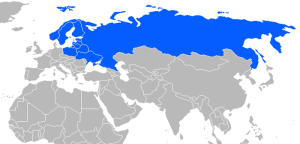 Please don’t throw sour grapes at me for saying this: it is merely a quote. But here goes, “Would the French like Champagne to be distilled from plums, and would the British accept whisky from apricots?”
Please don’t throw sour grapes at me for saying this: it is merely a quote. But here goes, “Would the French like Champagne to be distilled from plums, and would the British accept whisky from apricots?”
The answer is “obviously not” – but the question was asked in earnest by Richard Henry Czarnecki, a member of the European Parliament representing Poland. The time was 2007, and the occasion was the end of a heated debate in what is now known as “The Vodka War.”
Vodka has, for centuries, been produced and consumed by the countries of the “vodka belt” – Poland, Belarus, Ukraine, and Russia; the Baltic States of Latvia, Estonia, and Lithuania; and the Nordic states of Finland, Sweden, Norway, and Iceland – many of whom are now members of the EU. These vodkas are traditionally made from grains or potatoes, with the majority made from a mix of grains; and some of the finest examples are made from potatoes – particularly Poland’s unique, high-starch Stobrawa variety.
Then along came Cîroc – a unique French beverage distilled from grapes, produced in a neutral style, and branded as vodka. In response, the European Union proposed to revise their regulations on distilled spirits, and split the vodka product group into several categories based on raw materials and in some cases, flavor.
 This did not go over well with some members, and on February 20, 2006, Poland – with the backing of the EU vodka belt countries and Germany – demanded that the EU definition of “vodka” be restricted to those spirits produced from grains, potatoes, or sugar beets. Vodka, they claimed, was entitled to the same protections as to base ingredients and manufacturing processes as those awarded whiskies and brandies, and as such, should be granted the same assurances as to the quality and originality of the product.
This did not go over well with some members, and on February 20, 2006, Poland – with the backing of the EU vodka belt countries and Germany – demanded that the EU definition of “vodka” be restricted to those spirits produced from grains, potatoes, or sugar beets. Vodka, they claimed, was entitled to the same protections as to base ingredients and manufacturing processes as those awarded whiskies and brandies, and as such, should be granted the same assurances as to the quality and originality of the product.
Alas, this was not met without resistance, and the other EU producers of vodka, such as France and the UK, not to mention the non-traditional vodka producers of the rest of the world, countered with an argument that said that such restrictions would dissuade innovation and competition, and could be seen as an attempt to monopolize the vodka market by the Vodka Belt countries. The United States even threatened a trade war via the World Trade Organization.
Horst Schnelhardt, MEP from Germany, suggested a compromise: the EU definition of vodka could be written so as to include those products distilled from (1) cereals and/or potatoes, and/or those produced from (2) “other agricultural raw materials.” Those vodkas produced from “other agricultural raw materials” – such as grapes, carrots, or onions – must be labeled with a statement “produced from grapes” (or whatever the raw material may be). This proposal, referred to as the “The Schnelhardt Compromise,” passed, and is the law of the European Union today.
Poland, however, is not appeased and has responded by forming the Polish Vodka Association. The PVA, under the leadership of President Andrzej Szumowski, vows to protect the legacy of Polish Vodka. As of January 13th, 2013, a Polish law was passed defining Polish vodka as a product made exclusively in Poland, from Polish-grown grains or potatoes. Bottles meeting these criteria will be able to display a “Polska Wódka/Polish Vodka” symbol on their labels, as well as the official PGI for Polish Vodka.
References/for more information:
- https://eur-lex.europa.eu/legal-content/EN/TXT/PDF/?uri=CELEX:32008R0110&from=EN
- https://www.beveragedaily.com/Article/2006/06/28/Vodka-war-splits-EU
Post authored by Jane A. Nickles, CWE, CSS – your blog administrator.

The innovations & creativity crowd clashes with the history & tradition front – a classic tale!!
Hi, the “vodka war” never actually happened. Check out the episode “Vodka War” on the podcast “Our Fake History”.
Ummmmm….I can only assume that you did not read our post, as it concerns a dispute and subsequent compromise on the floor of the European Parliament that began in 2007 (and we provide the documentation to prove it). The podcast you mentioned, as fascinating as it was, discusses matters between Russia and Poland that (did, or more likely did not) occur many years earlier.